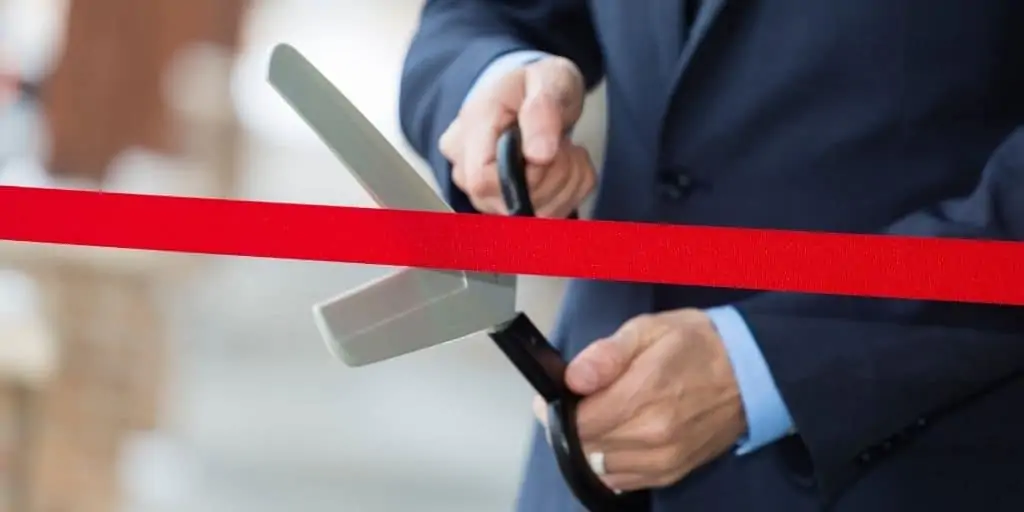
For many of us, nothing sounds better than working for ourselves.
Setting your own hours. Driving your own destiny. Earning a strong income without a boss leaning over your shoulder and telling you what to do. Maybe even working from anywhere in the world.
Still, transitioning from working stiff to a self-employed investor takes time, money, education, and plenty of effort on your part. So here’s how to become a real estate investor, starting with no experience.
1. Before You Invest
Real estate investing doesn’t begin with buying your first property. It begins with laying the groundwork, both with investing capital and learning how to become a real estate investor.
Boost Your Savings Rate
It’s not exactly a plot twist: investing in real estate requires money.
Yes, you can leverage other people’s money to invest in real estate. You can even flip houses with no money down, at least in theory. But greater leverage means greater risk, and when you first start investing in real estate, you’re far more likely to make expensive mistakes. Mistakes that can compound into major losses if you overleverage yourself.
So, while you’re still learning the ropes of how to become an investor in real estate, get serious about saving money. The more money you save up for investing, the more options you’ll have once you get started.
Buckle down and set aside a deep pool of investing capital.
Research and Decide on an Investing Strategy
There are dozens of ways to invest in real estate. Everyone understands the concepts behind rental properties and flipping houses, but those are just the two best-known investing strategies.
Other options include land investing, mobile home parks, short-term rentals (e.g., Airbnb), commercial real estate, private note investing, crowdfunding, syndications, and more. In some cases, you can get started with far less cash with these options than with rental investing or flipping houses.
Take some time to read the best real estate blogs. Listen to real estate investing podcasts while you work out, brush your teeth, or walk the dog. Get a broad sense of the many real estate investing strategies—then take a deep dive into the one that interests you most.
Importantly, you should set a time limit on this initial self-led research phase. It’s all too easy to fall into one of two common traps here: either analysis paralysis (delaying too long under the guise of education) or plunging headlong into investing without spending enough time on education.
It turns out that there’s a simple next step, to help you learn how to become a real estate investor while moderating your risk.
Find a Mentor
When I first set out, I never bothered doing the groundwork to learn how to become an investor in real estate. I thought that I could figure it out as I went along.
And I lost hundreds of thousands of dollars due to my youthful arrogance.
You can learn how to invest in real estate the easy way or the hard way. Either you can learn from your own mistakes, or you can learn from someone else’s.
Real estate mentors come in many forms. You could take real estate investing courses online, or pay an experienced coach for their time. Or you could partner with a veteran investor on your first few deals, so they can show you the ropes. If you’re charming, you could simply go out and make friends with an experienced investor, and pick their brain over a weekly happy hour drink.
How you find a mentor matters less than the fact that you find one at all. Find a guide to help you avoid common pitfalls and expensive mistakes so you don’t step off a cliff.
2. Your First Few Deals
In your first few deals learning how to become an investor in real estate, your goal is more about avoiding losing money while learning the ropes than scoring home run deals.
Your mentor should play a significant role in your first few deals. Have them review your cash flow or profit numbers to make sure you didn’t miss any expenses. Ask them about ways to reduce your risk.
Consider house hacking for your first deal. You can eliminate your housing payment while learning some of the fundamentals of real estate in a forgiving setting. And you can do it with owner-occupied financing, with its lower down payment, interest rate, and fees.
Getting rid of your housing payment also helps supercharge your savings rate. The extra savings will help you build investing capital faster.
Read up on quick start real estate investing tips to help you navigate your first few deals, and learning how to become a real estate investor.
3. Replacing Your 9-5 Income
Ultimately, your goal in becoming a full-time real estate investor is to quit your day job without losing the roof over your head. So you need to start building income from real estate to replace your 9-5 job.
Not all of it, necessarily. Hopefully, by now you’ve cut your living expenses sharply to boost your savings rate. That leaves a wide gap between what you need to survive and what you actually earn from your job.
In other words, you don’t need to replace every dollar of your 9-5 paycheck. You just need to earn enough to cover your living expenses—which you control.
To build enough income from real estate investing, you want multiple sources of income. These should include some ongoing streams of income such as from rental properties or private notes. But you can also earn intermittent bursts of income through flipping properties to keep the lights on.
If you invest in single-family homes, consider a mix of flipping houses and the BRRRR strategy. You buy fixer-uppers, and upon finishing the renovations, you sell some for an influx of profit, while you refinance others to pull your cash back out and do it all over again. And with each property you add to your portfolio, you bring in more monthly cash flow. It’s a great way to achieve ten properties in five years, even faster.
If you invest in land, sell some parcels outright, and finance others with seller financing. That achieves the same goal: simultaneously building steady cash flow and keeping enough capital on hand to continue scaling.
It’s at this point that you can start scaling faster with leverage. Once you’ve mastered the fundamentals, you can get more aggressive with flipping houses with no money down, for example.
Transition: How to Become a Real Estate Investor Full-Time
As you gain confidence and cash flow, you can start laying the groundwork to ditch your day job.
That begins with saving up a large personal emergency fund. When you cut the lifeline of your 9-5 job, you need a much larger emergency fund than the average working stiff. Set aside a bare minimum of six months’ living expenses, preferably a year’s worth.
It also helps have other sources of household income. If you’re married, that could include your spouse’s income. When I first started a business, my wife and I could live entirely on her salary and benefits. That gave me a huge advantage, with no financial ax hanging over my neck.
Don’t be afraid to create other side hustles or side gigs as well as a floor to your income. For example, I started freelance writing around the time I started a business, to bring in some predictable income to keep my wife happy. I found that I liked writing so much that I continue doing it to this day, despite my properties and business generating profits.
Again, you want as many sources of income as possible. What starts as a few trickles soon becomes a stream, then a flowing river, and eventually a flood.
Run the numbers on when you can quit your day job, using a financial freedom calculator. And remember, in a worst-case scenario, you can always go back to work.
Final Word
The lower you keep your living expenses, the more money you can invest, and the less money you need to quit your job and become a full-time investor.
When you first start your journey, focus on the fundamentals. It remains one of the four keys to becoming a millionaire real estate investor: master the fundamentals before you scale.
Learn from other investors’ mistakes, and you’ll quickly learn how to become an investor in real estate.
What’s holding you back as you explore how to become a real estate investor?












